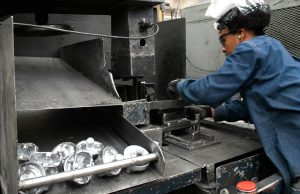For UK businesses, the question of whether to measure carbon emissions used to be debatable. However, as regulations and clients become more sustainably conscious, it’s become a question about how quickly they can start and how accurately they can track progress.
Regulatory changes, shifting investor expectations and growing customer awareness have turned carbon footprint measurement from a “nice-to-have” into an essential part of business. Those who fail to act risk more than reputational damage; they could soon face real financial and legal consequences.
The Regulatory Push Towards Carbon Accountability
Over the past decade, the UK government has tightened rules on corporate environmental reporting. Large companies are already required to disclose emissions under the Streamlined Energy and Carbon Reporting (SECR) framework. The push is expanding rapidly, with public and private sector clients increasingly asking for verified carbon data before awarding contracts.
This issue is no longer confined to big corporations. Supply chain accountability means smaller businesses, particularly in construction, manufacturing, and professional services, are asked to provide carbon metrics to maintain preferred supplier status. The UK’s legally binding net zero target for 2050 is driving further changes, making it clear that measuring and reducing emissions will soon be expected for businesses of every size.
Why Inaction Is No Longer an Option
Businesses that delay carbon measurement risk falling behind competitors who can already demonstrate sustainability credentials. This isn’t just about winning contracts; it’s about avoiding the operational risks of being excluded from supply chains. Failure to report carbon data could mean being locked out entirely for publicly funded projects.
The financial risks are also mounting. Carbon-intensive operations are more exposed to future taxes, increased insurance premiums and fluctuating energy costs. Without measurement, companies cannot identify efficiencies or predict these cost impacts. Beyond compliance, customers and investors make purchasing and funding decisions based on environmental responsibility, meaning those without credible data risk losing trust.
Measuring Your Carbon Footprint: The Practical Steps
While each organisation’s journey will differ, the core carbon footprint measurement process follows this basic structure. Follow these five steps to start accurately measuring and reporting carbon impact.
Determine which parts of your operations, such as offices, vehicles, production facilities, and supply chain activities, will be included.
Gather information on energy use, fuel consumption, business travel, waste and purchased goods and services.
Break down emissions into Scope 1 (direct emissions), Scope 2 (indirect emissions from purchased energy) and Scope 3 (all other indirect emissions, such as supply chain and product use).
To ensure credibility, use established methodologies, such as the Greenhouse Gas Protocol or ISO 14064.
Use third-party verification to strengthen trust in your data before sharing it with stakeholders.
Turning Measurement Into Competitive Advantage
Accurate carbon measurement is more than a compliance exercise; it’s the foundation for targeted reduction strategies. Once businesses understand their emissions profile, they can make informed decisions about investments in energy efficiency, renewable power, supply chain optimisation and low-carbon product development.
Forward-thinking companies already use carbon reporting as a differentiator, embedding their performance in bids, investor presentations and marketing materials. By aligning with recognised standards and disclosing progress publicly, they demonstrate transparency and commitment qualities that resonate strongly with modern consumers and procurement teams.
How Veriforce CHAS Supports Carbon Measurement and Compliance
For many businesses, the most significant barrier to action is not willingness but capability. This is where Veriforce CHAS provides practical support. Through its sustainability and compliance services, Veriforce CHAS helps companies identify which emissions data to collect, guides them through recognised measurement frameworks, and ensures results align with client and regulatory requirements.
Beyond measurement, Veriforce CHAS assists in embedding carbon reduction into everyday operations, ensuring businesses are reporting figures and actively working towards improvements. This proactive approach meets compliance needs and strengthens tender submissions, improves supply chain relationships and enhances brand reputation.
Carbon footprint measurement is fast becoming an operational necessity. With regulatory requirements tightening and commercial expectations rising, businesses that start now will be better positioned to adapt, innovate and compete. Waiting until reporting becomes mandatory will leave little time to establish accurate baselines or demonstrate meaningful progress.
By measuring their carbon footprint today, UK businesses are meeting compliance standards and investing in resilience, efficiency, and long-term success in a low-carbon economy.














